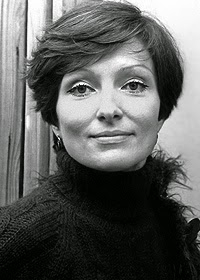Your private guide in Prague and Karlovy Vary
A
festival that along the years is getting more internatinal relevance
is the festival that I´ll write about above. Don´t miss it, you
will have the opportunity to meet famous actors, directors, to
participate to discussions about films and of course to see films for
the first time at the cinema!
I
already scheduled to go, as I do every year :-)
A festival that along the years is getting more internatinal relevance is the festival that I´ll write about above. Don´t miss it, you will have the opportunity to meet famous actors, directors, to participate to discussions about films and of course to see films for the first time at the cinema!
Karlovy Vary
51th
International Film Festival 1-9/7 2016
A brief Festival history
1946 - 1947
A
film festival had been considered in Czechoslovakia even before the
Second World War. The Ministry of Information and Culture supported
the idea, aware of film´s social importance, and because of the
favorable situation resulting from the nationalization of the
Czechoslovak film industry in 1945. In August 1946 the first
non-competition festival took place in Mariánské Lázně and
Karlovy Vary.
In
addition to the films presented by the nationalized film industry,
films from countries with a strong movie making tradition like
England, Sweden, the USA, and France were included. The number of
films in the modest program (each day one film was screened three
times at the Festival Theater in Mariánské Lázně and was then
shown the next day at the new Open Air Cinema in Karlovy Vary) was
compensated for by the quality of the movies selected and by the
accompanying program of social events.
The best of 51th MFF KV
A retrospective of
an iconic female-director
Larisa Shepitko
The
life of the legendary director of Ukrainian-Iranian origin Larisa
Shepitko (1938
– 1979), whose student film Heat (1963)
won the prize for best debut at the 14th Karlovy Vary IFF, ended all
too soon in an automobile accident. The five films that Shepitko
managed to make in her lifetime nonetheless made her an icon among
female directors.
The
fascinating filmmaker who, together with her no-less-esteemed husband
Elem Klimov, was a part of Moscow’s cultural elite, reasserted her
talent in her second film, Wings,
a sombre portrait of a woman and former wartime pilot living out an
“ordinary” life as a school headmistress. Then she contributed to
the filmBeginning
of an Unknown Era,
commissioned to mark the 50-year anniversary of the October
Revolution. In spite of the Party’s expectations, however, the
propaganda work was left uncompleted and remained in the vault for
the next twenty years.
She
tried out working with colour film on the unconventional
psychological drama You
and Me(1971),
but five years later went back to the characteristically bewitching
black-and-white images that she mastered in her studies at VGIK under
Alexandr Dovženko in her sublime The
Ascent.
One of the most often cited cinematic reflections on the Second World
War, The Ascent won four prizes at the Berlinale, including the
Golden Bear. Her next film was to be an adaptation of Valentin
Rasputin’s novel Farewell
to Matyora -
it was finished by Elem Klimov, who also created a 30-minute
commemorative film about his wife called Larisa.
A
Week of Lebanese cinema
With
this year’s A
Week of Lebanese cinema,
the KVIFF ties in with its successful series of previous years (Young
Greek Cinema or A Female Take on Russia) and presents a programme of
eight titles filmed over the last 25 years in a country with one of
the longest cinematic histories in the Middle East.
The
selection will be ushered in by an absorbing drama about the
abduction of a French journalist, Hors
la vie(1991),
for which director Maroun Bagdadi received the Jury Prize in Cannes.
Director and actress Nadine Labaki has won over audiences with the
gentle humour and enchantingly picturesque approach she takes to
serious issues, best depicted in her second film Where
Do We Go Now (2011).
One
of the biggest hits in the history of Lebanese cinema, good-humoured
drama West
Beirut (1998),
remembers the beginning of the long Civil War. The documentary
film Sleepless
Nights (2012)
also deals with echoes of this conflict, as is the acclaimed drama A
Perfect Day (2006).
A vivid indictment of destructive military conflict, Under
the Bombs,
emerged a year after the outbreak of the 2006 Lebanese War.
The
love lives of two girls in their twenties in modern Beirut are
portrayed in an intimate documentary E
muet(2011).
The programme will end with The
Valley (2014)
that takes an original look at the theme of the “man without a
past“.
Visit
Prague and Karlovy Vary with private guide http://www.visita-praga.eu/



No comments:
Post a Comment